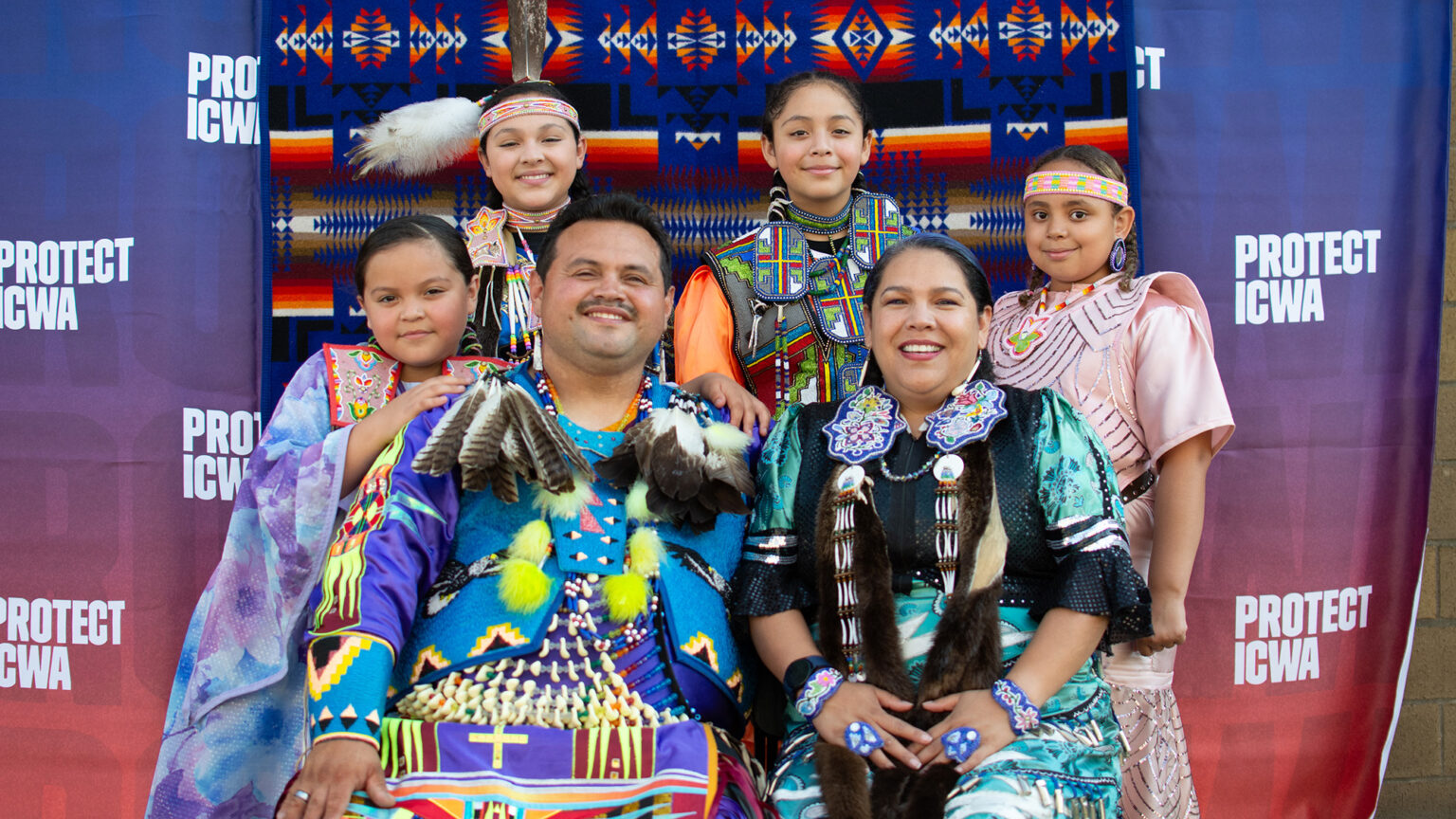Quarterly Newsletter
“Finding Strength in Family”
NICWA News is the quarterly newsletter for members and donors of the National Indian Child Welfare Association. Donate or become a member today to subscribe.
A Message from NICWA’s Executive Director
Dear NICWA Members, Sponsors, Donors, and Friends,
Welcome to the Fall issue of NICWA News. The theme of this issue is Finding Strength in Family.
We’re at the end of summer, and kids are back in school. As I write this letter, I’m on late summer vacation to visit my parents, who relocated to Florida with my brother and his family last year. Most of my immediate family lived in the Washington, DC metro area for many years, meaning that I could frequently add on or squeeze in a quick visit with my parents, siblings, and nieces and nephews when I was in DC for work. A big segment of that family moved last year, making our visits less frequent and requiring more intention and planning.\
For many of us, our extended families are the source of our identity—how we learn who we are in relationship to those who will play a significant role in caring for us and shaping our lives. Our families are our first teachers and frequently the context for our earliest experience of love and belonging. Our families ground and center us. They remind us that we are part of something bigger than ourselves. Especially if you’re the oldest child, like me, our families take away selfishness and expand our sense of ourselves. Our families are the training grounds for many of life’s important lessons: how to work hard and cooperate, care for others, learn life skills, discover some of our gifts and talents, find the first of our life’s purposes, cope with disappointment and loss, and experience healing. Our families may also teach us by example some of the things we don’t want in our lives when we’re old enough to make our own choices and choose our own path.
Our families may even be the place we test out some of our ideas about who and how we want to be in the world. In second grade, I couldn’t decide whether I wanted to be a teacher or a professional roller skater. My three younger siblings were the subjects of many experiments as I explored the idea of being a teacher. They sat for endless hours doing “homework” worksheets I made for them and were the first registrants in the neighborhood bike safety class I created.
Because our families are so central to our life experiences, our work for the well-being of children necessarily includes families. This is a core value of NICWA—our cultures are organized around family relationships, so our services must be family-focused, addressing the whole family’s needs.
The child welfare system in our country has its earliest roots in the Elizabethan poor laws. The system was founded on determining whether families were “deserving” of help. Child safety was attained through “rescuing” children from their families rather than helping families achieve safety through services, supports, and concrete resources. In many places, the child welfare system still too closely resembles this archaic model. Fortunately, many tribal nations are refounding their child welfare program based on their traditional values, worldviews, and teachings. Extended families are recognized as the natural safety net to meet the needs of children and support parents. The shift to valuing parents and families and partnering with them in formal and informal ways to keep kids safe and preserve their sense of identity and belonging as part of a large nurturing network is critical to help ensure well-being and permanency.
Sarah L. Kastelic, PhD (Alutiiq)
